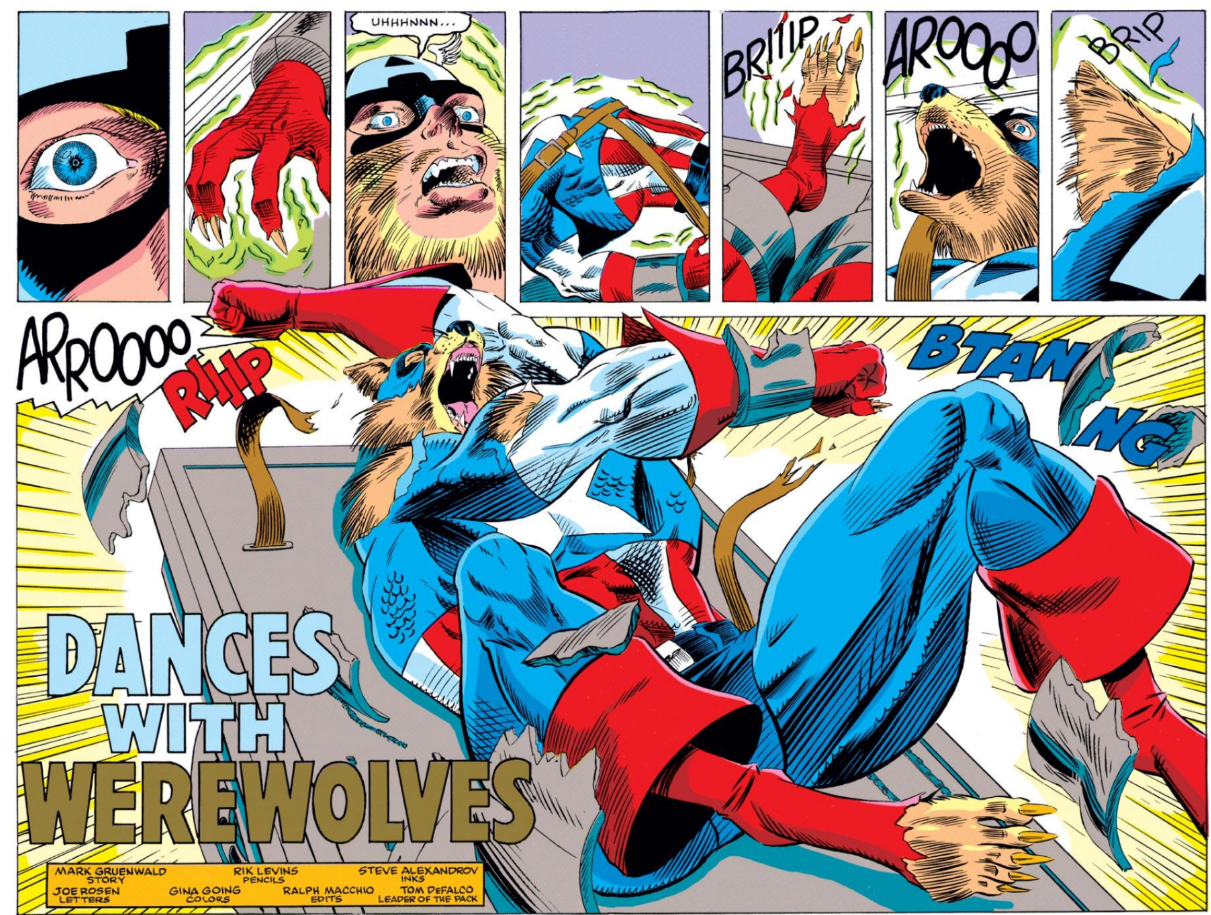

Captain America represents the American People and Dream, and not the government or even the President. Ideals cannot be compromised on the behest of orders from the government.

And it spoke to readers about the essence of Captain America.

But this was the first time I ever came across it. However, he considered his magnum opus to be the mid-1980s 12-issue miniseries Squadron Supreme, which told the story of an alternate universe where a group of well-intended superheroes decide that they would be best suited to run the planetĬomments: This is one of my favorite issues of any comic book of any era from any publisher. His 60-issue run on Quasar realized Gruenwald's ambition to write his own kind of superhero. He made a deliberate effort to create villains who would be specific to Captain America, as opposed to generic foes who could as easily have been introduced in another comic. As a writer, Gruenwald is best known for creating the Official Handbook of the Marvel Universe and his ten-year stint as the writer of Captain America during which he contributed several notable characters such as Crossbones, Diamondback and U.S. In 1982, Gruenwald, Steven Grant, and Bill Mantlo co-wrote Marvel Super Hero Contest of Champions, the first limited seriespublished by Marvel Comics. During this period, he shared an office with writer/editor Denny O'Neil, whom Gruenwald considered a mentor. Hired initially as an assistant editor in January 1978, Gruenwald was promoted to full editorship by Marvel editor-in-chief Jim Shooter in 1982, putting Gruenwald in charge of The Avengers, Captain America, Iron Man, Thor, Spider Woman, and What If. In 1978 he was hired by Marvel Comics, where he remained for the rest of his career. Articles by Gruenwald include "The Martian Chronicles" (a history of the Martian Manhunter) in issue #13 and several articles on the history of the Justice League in issue #14. Before being hired by Marvel, he wrote text articles for DC Comics official fanzine, The Amazing World of DC Comics. Gruenwald got his start in comics fandom, publishing his own fanzine, Omniverse, which explored the concept of continuity.


 0 kommentar(er)
0 kommentar(er)
